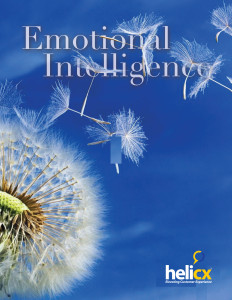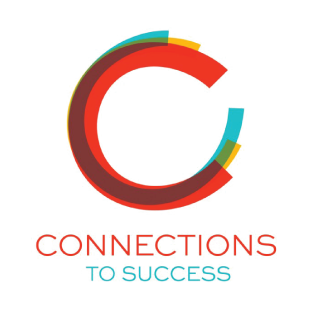Emotional Intelligence
A Pathway to Personal Success
Part One
Achieve personal mastery as you transcend challenges and learn secrets of soaring new heights through emotional intelligence.
Mastery: “ascendancy or victory in struggle or competition.”Masters are the victors of life, those who step up to the challenges and opportunities of life with the courage, determination, and wisdom to win the private and public victories.
Emotional intelligence mastery does not happen by accident. It is a process that occurs as we interact effectively with the events and circumstances of our lives. Each moment of our lives provides an opportunity to practice mastery by expanding our visions, awakening the faculties of our minds and our hearts, and assuming full responsibility for living, growing, and contributing.
What You Can Expect
People who attend this program will learn a set of principles that will change the way they view their lives as well as their performance on the job. They will grow in self-understanding, confidence, personal effectiveness, and their ability to handle the challenges/opportunities of the workplace. Such personal transformation forms the foundation for organizational transformation.
Part Two
Principles of Self-Mastery
The Integrity Model:
A paradigm of personal effectiveness that defines success as what happens within you rather than what happens to you.
- Understand the process of self-mastery.
- Learn the flaw inherent in the common symbols of success.
- Develop a new definition of success based upon your personal paradigm.
- Experience the power of your personal paradigm.
- Learn the four different paradigms from which people live.
- The core beliefs of each paradigm.
Embrace Reality:
Discover power and fulfillment as you stop wasting time resenting, complaining, wishing, and blaming and instead keep your focus on what you can control.
- Understand the nature of reality.
- Learn the importance of aligning your life to reality.
- Accept some of the difficult realities of your life.
- Explore and let go of resentments, complaints, and blame.
- Learn to live in the here and now.
Exercise Responsibility:
See how success and quality of life come from choices made and learn to act rather than react to the events of your life.
- Learn the meaning and nature of personal responsibility.
- Understand how you avoid taking responsibility for yourself.
- Assess your willingness to accept personal responsibility.
- See the choices available in your life.
- Understand the power and freedom that comes from accepting responsibility.
Conquer Your Key Moments:
Learn how to conquer and transcend the challenges of life by changing your thinking, feelings, and behavior
- Understand how you respond to challenging or upsetting events (key moments).
- Explore and understand the patterns in your responses to key moments.
- Develop a process for exploring the consequences of your behavior.
- Choose positive behaviors and feelings during your key moments.
- Identify and challenge the distortions in your interpretations.
- Learn a method for changing weakening beliefs to empowering beliefs.
Clarify Your Vision:
Know what you want and the steps that you must take to achieve it.
- Understand the meaning and power of vision.
- Clarify your personal vision.
- Evaluate the thoughts that keep you from living your vision.
- Set goals to achieve your vision.
Define Your Purpose:
Decide what your life is about and those principles by which you will govern yourself.
- Understand the difference between three kinds of vision.
- Write your personal purpose statement.
- Clarify your guiding principles.
- Develop affirmations to support you in living your purpose and guiding principles.
- Use the technique of visualization to make your vision a reality.
Act With Integrity:
Translate your purpose and vision into reality and make your day-to-day actions consistent with what is most important.
- Understand the meaning of personal integrity.
- Recognize when you are acting from personal integrity.
- Know the symptoms and consequences of self betrayal.
- Learn to let what matters most govern what matters least.
- Deepen your commitment to what is most important.
- Learn to make your behavior more congruent with what is most important to you.
Value Who You Are:
Make a decision to care for yourself, accept your weaknesses, and acknowledge and build upon your strengths.
- Understand the meaning and importance of self-esteem.
- Become the primary source of your self esteem.
- Accept your imperfections.
- Learn to make time for self-renewal.
- Acknowledge and build upon your strengths.
- Maintain an attitude of gratitude
This approach to change is not a quick fix. However, during this program you will learn principles and participate in exercises that will allow you to truly become master of your own life.
Contact Us!
Testimonials
One of the things that has been a resounding AHA! moment is that it’s created this sense of awareness, of self-awareness, for all of us that I know is one of the goals of the entire program.
The ability to pick and choose what’s right for your company was very good because I don’t like canned solutions.
Of course, we had our doubts, but they proved us wrong. 360 delivers every year for the last three years. We have conducted thousands of days of training. They believe in the program, they care about the participants, they go the extra mile. Also the trainings are taught in Spanish.
Many of our retailers have benefitted from the marketing processes they implemented.
A lot of times companies want to take one event, or one series of meetings and boom, it’s going to fix everything but it’s more of a process. You have to make it part of a program. I’m a CFO so I could cut this from our budget but you really have to make it part of a long term program.
Our participants, they love it. They truly enjoy their workshops and feel they’re beneficial to any body.
I was stunned at the quality of the materials. The stuff was leading edge, very well-produced and very high caliber.
They were truly the first people to really “get” what we were talking about. In that very first interview, we were able to start working toward what we actually might do and how it might work.
The assessments have been extremely beneficial to me. Because in order to manage people to the point they can be the most successful, you have to understand that person. It’s not about understanding that person between 8 and 5, it’s about understanding who that person is, what moves them, what motivates them to the greatest level of success.
“Our interview process, we managed to change it based off things they showed us. The improvements have been good. We’re seeing it with the new employees coming in, we’re building a better team, we’re interacting with them more.”



